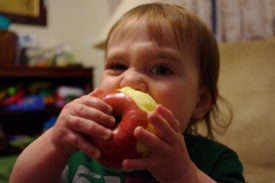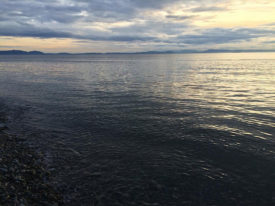
We’ve already released the results, but they’re worth repeating to remind folks why this matters: We tested breastmilk donated by 40 Cascadian women for PCBs and PBDEs (toxic flame retardants widely used in products such as carpet foam, which are similar to PCBs and also toxic).
The bad news: We found both persisent chemicals in each of the 40 samples, similar to findings from other studies showing rising levels in North America).
Possibly even more disturbing, in about a third of our breastmilk samples from the Pacific Northwest, PBDE levels exceed PCBs.
From the Chemosphere paper: “Clearly, the lower brominated PBDEs are surpassing PCBs as a major environmental concern in North America, and are likely affecting significant portions of the populations in these regions” (let alone salmon, orcas, and other critters).
The good news: Action has been taken. A quick update:
- The production of the most troubling forms of PBDEs has now ceased in North America, due to an agreement between the US Environmental Protection Agency and the chemicals’ manufacturer.
- In early 2007, the Washington state House of Representatives voted overwhelmingly for a total ban of the compounds, including deca-PBDEs—the only form of the compound that’s still widely used. The first Senate hearing is March 20th at 10:00 am.
- A bill passed in Oregon in 2005 banned the use of the most toxic forms of PBDEs in the state; the ban took effect last year.
- Canada announced in 2006 that it would add all forms of PBDEs to its national list of toxic substances, which may make them subject to additional regulations.
Now, if we could just stop this from happening again…
P.S. – Check out our animation showing rising levels of PBDEs in North America, and Washington Toxic Council’s new collection of PBDE-free pictures.









Dan
Congrats on the pub, Clark. I’m sorry you had to conduct the research.Regards,DS